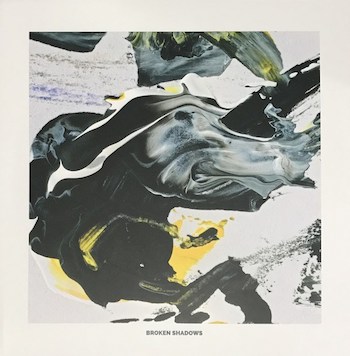Jazz LP Review: Newvelle Records’ Sensational Season Four
By Michael Ullman
These records are filled with music from some of the most intriguing and, indeed, sought after, jazz musicians playing today.
Tim Berne/ Chris Speed, Broken Shadows, Billy Lester, From Scratch, Noah Preminger, Preminger Plays Preminger, Hank Roberts, Congeries of Ethereal Phenomena, Gregory Tardy with Bill Frisell, More Than Enough, Kenny Werner, Church on Mars. Newvelle Records
These six Newvelle lps constitute what the Parisian-based audiophile company calls its fourth season. This company has embarked on a remarkable venture. It has now produced 24 high end lps (available by subscription only). I have written before about these elegantly packaged, translucent discs: they are, to begin with, as silent as the grave. They feel heavy and, though this sounds silly, they are strikingly flat. More importantly, these records are filled with music from some of the most intriguing and, indeed, sought after, jazz musicians playing today. The players seem to be carefully chosen. Their careers frequently overlap, even the musicians on these six issues. I first heard of cellist Hank Roberts, for instance, when in the late ’80s he was playing and recording with Tim Berne (on such albums as Fulton Street Maul and Fractured Fair Tales) and in a series accompanying Bill Frisell (Lookout for Hope from 1987 to Big Sur in 2013). All three musicians are at the helm of some of these new releases. I am guessing it is the producer’s taste, but the lps are programmed with mostly short numbers: between two and eight minutes.
 The music in season four is strikingly contemporary, and the repertoire fascinating. Co-led by saxophonists Tim Berne and Chris Speed, Broken Shadows features six Ornette Coleman compositions and two by sometime Coleman band members Charlie Haden and Dewey Redman. These are hemmed in by the opening and closing numbers, “Body” and “Dogon A.D.,” both by the late saxophonist Julius Hemphill. It’s as if Berne and Speed were re-creating a history of jazz alto performances, post-modern edition. The performances also remind us what wonderfully tuneful pieces Coleman and Hemphill penned. Berne and Speed play a harmonized version of the Coleman lament “Broken Shadows” over the bowed bass of Reid Anderson. Later in that tune, Berne improvises while Speed plays the melody underneath him. The performances capture the deep feeling Coleman sometimes evokes, as well as the freedom of his technique. “Una Muy Bonita” reminds us that Coleman grew up in Fort Worth, Tex-Mex country. Charlie Haden’s “Song for Che” from his Liberation Music Orchestra record (arranged by Carla Bley) becomes here, appropriately, a feature for bassist Reid Anderson. The Berne-Speed version of Hemphill’s “Dogon A.D.” mimics the light, rhythmic liveliness of the original.
The music in season four is strikingly contemporary, and the repertoire fascinating. Co-led by saxophonists Tim Berne and Chris Speed, Broken Shadows features six Ornette Coleman compositions and two by sometime Coleman band members Charlie Haden and Dewey Redman. These are hemmed in by the opening and closing numbers, “Body” and “Dogon A.D.,” both by the late saxophonist Julius Hemphill. It’s as if Berne and Speed were re-creating a history of jazz alto performances, post-modern edition. The performances also remind us what wonderfully tuneful pieces Coleman and Hemphill penned. Berne and Speed play a harmonized version of the Coleman lament “Broken Shadows” over the bowed bass of Reid Anderson. Later in that tune, Berne improvises while Speed plays the melody underneath him. The performances capture the deep feeling Coleman sometimes evokes, as well as the freedom of his technique. “Una Muy Bonita” reminds us that Coleman grew up in Fort Worth, Tex-Mex country. Charlie Haden’s “Song for Che” from his Liberation Music Orchestra record (arranged by Carla Bley) becomes here, appropriately, a feature for bassist Reid Anderson. The Berne-Speed version of Hemphill’s “Dogon A.D.” mimics the light, rhythmic liveliness of the original.
Noah Preminger was, according to Newvelle’s notes, raised on stories from his grandmother about film director Otto Preminger, a cousin of his grandfather. He has now made a recording of some of the music in Otto’s films. As he prepared for this album Noah became obsessed with Preminger’s movies: he watched The Cardinal three times the week before recording its theme, the evocative and gentle, “Stay With Me.” He includes Duke Ellington’s “Way Early Subtone” from Anatomy of a Murder, which in Ellington’s hands is a slow and yet somehow jumpy tune. Ellington’s version begins with a swagger, saxophonist Johnny Hodges wailing over the band’s statement of the theme. After a stop and go chorus by the reeds, played over the clicking of a drum stick, the performance relaxes into a blues that features Jimmy Hamilton’s clarinet. Preminger’s version moves more quickly, the saxophonist hinting at the rhythmic breaks Ellington works into the theme. Meanwhile, star pianist Jason Moran comments dramatically. Moran eventually takes over, maintaining some of the original’s rhythmic peculiarity. Later, Preminger plays the theme from what I consider to be Otto Preminger’s masterpiece, Laura. Again, what is striking here is the rhythmic liveliness generated out of what is essentially a sweet, mild-mannered performance: bassist Kim Cass and drummer Marcus Gilmore are equally responsible for the intelligent yet lively lyricism of this session.
The duet album More Than Enough by saxophonist Greg Tardy and guitarist Bill Frisell begins with one of Ellington’s most gorgeous melodies, “Single Petal of a Rose.” (Every jazz fan should hear Ben Webster’s version on See You At the Fair.) Frisell picks out the melody as Tardy plays graceful phrases around him, taking over more forcefully on the bridge. Nothing feels forced: these two virtuosos are content to keep it simple. The Ellington ballad is a perfect opener for an intimate, even at times folksy, session that ends with a seductively genial version of the Stephen Foster song “Hard Times.” In between, Tardy and Frisell come back to Ellington’s world with Billy Strayhorn’s “Blood Count,” which Ellington recorded on And His Mother Called Him Bill. There are also two Monk ballads, “Ask Me Now “and “Monk’s Mood.” Monk, we frequently forget, started out playing gospel music (and blues). The title cut of More Than Enough is a gospel song by the late Thomas Whitfield. Everywhere, Tardy and Frisell seem to be singing the lyrics of the songs they play: “You’re my healer / By your stripes I’ve been set free/You’re more than enough,/ more than enough,/ more than enough for me.” Remarkably, Tardy and Frisell make Monk sound as domestic as Stephen Foster.

On Congeries of Ethereal Phenomena, cellist Hank Roberts plays a set mostly of originals, with pianist Jacob Sacks and drummer Vinnie Sperrazza. But he too returns to Monk with a jaunty, oblique version of “Evidence.” Robert’s titles may be mysterious, but to this listener the performances sound solid, rather than ethereal. Roberts begins by bowing the slow-moving theme of “Blind Resonance,” and then moves into the rhythmically complex “Welcome.” But the heart of this lp is the five part suite, “Trio 7,” which begins with “Rain Sunrise” and ends with “Compassion.” Amusingly, the central tune is “Peaceable Enough.” Roberts plays and sings “Back Home in Indiana” — his voice is pleasantly amateurish — before going into Charlie Parker’s version of “Donna Lee.”
In a more typically boppish session, aided by the star rhythm section of bassist Rufus Reid and drummer Matt Wilson, pianist Billy Lester also performs “Indiana.” In From Scratch‘s set of familiar standards and bop tunes (“Scrapple from the Apple”), Lester plays around with the melody of “Body and Soul” and he begins “You’d Be So Nice to Come Home To” in mid-gallop. He follows that with a gently swaying version of “These Foolish Things.”
Pianist’s Kenny Werner’s Church on Mars includes veteran saxophonist Dave Liebman, supported by bassist James Genus and drummer Terri Lyne Carrington. On “Embraceable You,” they are joined by vocalist Vivienne Aerts. Liebman introduces his introspective composition “Tender Mercies” on flute before moving to soprano sax. (I am wondering if he was thinking of the Handel aria with the lines: “So long the memory shall last/ Of all the tender mercies past.”) The session ends (almost inevitably) with another Monk tune, “Think of One,” which begins with a strange buzzing on piano (rapidly repeated notes too fast to suggest any particular rhythm) with Liebman in the background. It’s a unique sound that gives way to a steadier version of the Monk tune. Yet, here again, Monk suggests and provokes rhythmic inventiveness. Werner returns to a tamed version of his opening in an intriguing solo that drifts irregularly over Carrington’s solid drumming.
These Newvelle musicians are nothing if not distinctive individuals; yet they seem to share similar esthetic values as well as repertoire. Or perhaps, as these uniformly pithy, meaty performances suggest, it might be more accurate to say that they share — at least temporarily — the values of their producer.
Michael Ullman studied classical clarinet and was educated at Harvard, the University of Chicago, and the U. of Michigan, from which he received a PhD in English. The author or co-author of two books on jazz, he has written on jazz and classical music for The Atlantic Monthly, The New Republic, High Fidelity, Stereophile, The Boston Phoenix, The Boston Globe, and other venues. His articles on Dickens, Joyce, Kipling, and others have appeared in academic journals. For over 20 years, he has written a bi-monthly jazz column for Fanfare Magazine, for which he also reviews classical music. At Tufts University, he teaches mostly modernist writers in the English Department and jazz and blues history in the Music Department. He plays piano badly.

Hi Michael,
Band is actually a coop and not co-led by
Chris and I.
Thank you,Tim